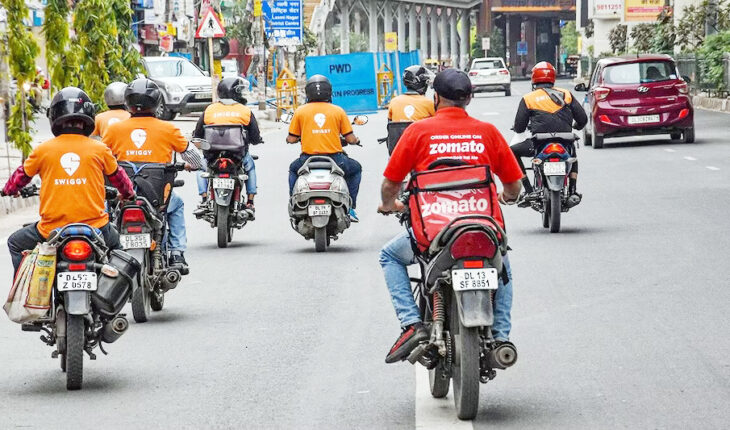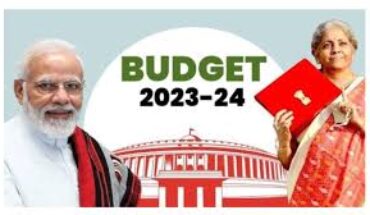
Kingshuk Sarkar
The Union Ministry of Labour and Employment is drafting a national law to incorporate gig workers into social security schemes, offering benefits such as health insurance and retirement savings. The government is expected to require aggregators to contribute 1%-2% of their revenue to establish a social security fund, which would provide health insurance and other benefits. The government is also revising the definitions of gig and migrant workers to make them more inclusive and reflective of current employment realities.
The proposed legislation will establish a welfare board model, creating a fund for the social security of gig workers. It mandates the registration of all gig workers and requires aggregators to give a 14-day notice, with valid reasons before termination, while ensuring transparency in automated systems. Dispute resolution mechanisms will also be introduced to protect gig workers’ rights.
The Labour Minister also pointed out that aggregator companies that employ gig and platform workers will be asked to take the lead in registering their workers on the portal. Workers registered on the Labour Ministry’s e-Shram portal are eligible for life and accidental insurance, along with other benefits.
Labour codes
In this context, it can be mentioned that India formulated four new labour codes in 2019 and 2020. These codes essentially simplified and rationalised existing labour laws and enabled 29 central labour laws to be merged in four broad codes: namely, wage, social security, industrial relation and occupational safety health working conditions. The only code where gig and platform workers found mention is the Social Security Code 2020.
In this code, gig and platform workers are perceived as a subset of informal sector workers. Accordingly, the said code provided for the formulation of social security schemes for gig and platform workers by the central government. Further, like informal workers, gig workers ought to register themselves under the e-Shram portal through self-declaration.
Worker definition
The issue arises from the definition of gig workers in the Social Security Code 2020, which places them outside the traditional employer-employee relationship. This is problematic since many gig employers, as in some of the well-known companies, operate as formal entities within the formal sector. The exclusion of gig workers from the traditional employment framework is the crux of the problem.
It is a deliberate ploy on the part of the “aggregator” to demystify employment relations in gig and platform economies such that the application of existing labour laws get pre-empted. In a gig economy, employment relations remain ambiguous and workers are categorised as independent workers or contractors.
Such camouflaging of employment relations leads to the misconception that the gig worker is an independent worker. The Social Security Code 2020 accepts this deception and includes gig workers as part of the informal sector. The Code does not decipher the real employment relation in the gig and employment economy.
Also, there is a huge difference in terms of entitlement between institutional social security and social security schemes. For example, formal workers get 26 weeks of paid leave along with job security for the entire period of maternity under the Maternity Benefit Act, 1961. This is part of institutional social security coverage.
Under social security schemes, for maternity benefits, there is a cash benefit such as ₹5,000-₹10,000 given to registered informal workers. The gap between an institutional social security and a social security scheme in terms of entitlement is very clearly evident. The Social Security Code 2020 sets to provide gig workers with only certain social security schemes but not institutional social security.
Similarly, other forms of institutional protection such as minimum wage protection are missing for gig workers. Occupational safety and health regulations do not apply for gig workers. Gig workers are not included under the Industrial Relations Code 2020 and are not covered under the dispute resolution mechanism provided thereunder.
The cornerstone of protection under labour laws is the explicit employment relation. This is what is not defined for gig work in the Indian context. Pieces of legislation introduced in recent times in States such as Rajasthan and Karnataka also suffer from this particular lacunae.
The core issue
If the Union Ministry of Labour and Employment is serious about protecting the interests of an ever increasing number of gig workers in the country, it should define the employment relation in gig and platform in an explicit manner and remove the veil created by so-called “aggregators”. Recognising “aggregators” as employer and reclaiming explicit employment relation in gig work is the key factor.
An important precedent here is the ruling by the U.K. Supreme Court on the Uber case in 2021 — Uber was deemed to be an employer, Uber drivers as “workers” and Uber asked to honour the prevailing labour laws of the land.
Once the employment relationship is clearly defined, gig workers can be included under the proposed four labour codes, eliminating the need for separate legislation. The welfare board model, as suggested by the Union Ministry of Labour and Employment has shown limited effectiveness in the past, particularly with construction workers, who were also classified as informal despite working for formal employers. Clarifying the employment relationship in gig work would further promote the formalisation of workers in this sector.
Moreover, the entire labour code was designed for simplification and rationalisation. Introducing separate laws for specific workforce segments undermines this goal. The key is to recognise the employment relationship in gig work. Once this is addressed, the rest will follow.
Kingshuk Sarkar is a faculty member at the Goa Institute of Management and former labour administrator with Government of West Bengal. Views are personal.





